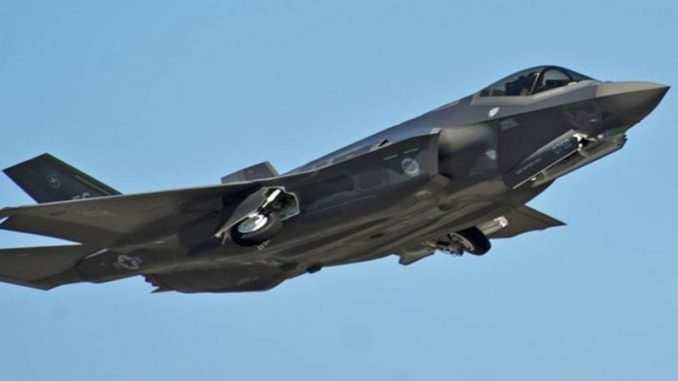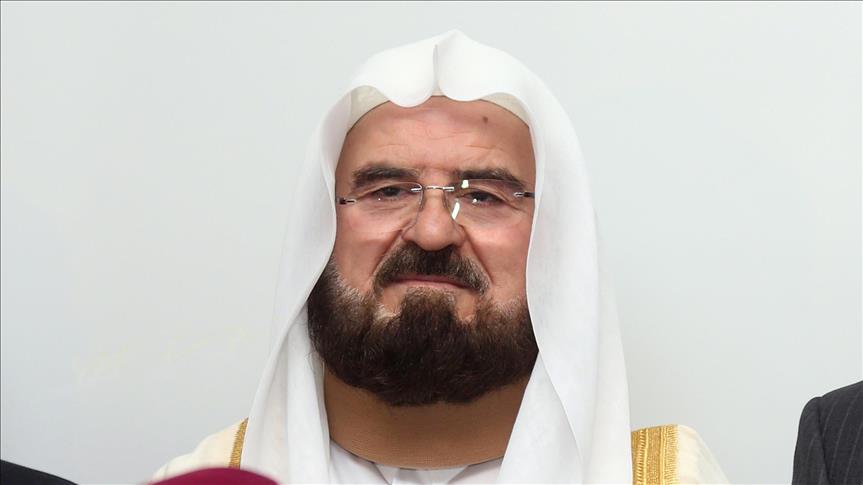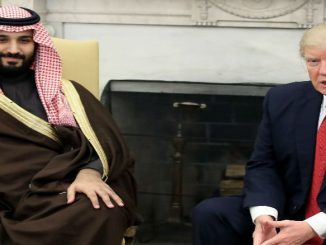
Turkey has to protect its airspace and the United States has failed to guarantee the sale of Patriot missile defense systems, Turkish Foreign Minister Mevlüt Çavuşoğlu said after a U.S. Congress delegation urged Ankara to give up purchasing S-400 missile systems from Russia to receive the F-35 fighter jets.
“We have to protect our airspace. This is a must for us. They should understand it. Can the U.S. give us a guarantee to sell Patriots?” Çavuşoğlu said in a press conference in Lithuania on Aug. 28.
Çavuşoğlu also stressed international law regarding the U.S. reluctance to transfer F-35s to Turkey.
“We are a partner in the F-35 program and some parts are produced in Turkey,” he said, calling on the U.S. to “leave the language of threats” to solve the ongoing diplomatic crisis between the two countries.
“If they say they can do anything they want, like in cowboy movies, then they will get a response,” Çavuşoğlu added.
“[The fact that] Congress members are coming to Turkey is important. Because there are different institutions in the U.S., different positions, different beliefs […] Of course, there are also members of the Congress who know the importance of Turkey and those who strive for the strengthening of Turkey-U.S. relations,” he added.
“Our relations with Russia are not an alternative to our relations with Lithuania or the European Union or our relations with the United States… Turkey can perfectly balance its foreign policy in the region,” he stated.
A three-member delegation headed by Congressman Michael Turner, a member of NATO Parliamentarian Assembly, visited Turkey on Aug. 27. The delegation met with Turkish parliamentarians and discussed the issues of Turkey’s purchase of Russian S-400 systems and delivery of F-35 fighter jets to Turkey.
The congressmen urged Ankara to abandon procurement of S-400 systems to guarantee the delivery of the F-35s, while the Turkish side stressed further cooperation against the Fethullahist Terrorist Organization (FETÖ).
Washington to Ankara: Give up S-400s and get the F-35s.
The members of a delegation from the United States Congresg, who visited Turkey and met with their Turkish parliament counterparts on Aug. 27, have urged Ankara to give up purchasing S-400 missile systems from Russia to receive the F-35 fighter jets.
A three-member delegation headed by Congressman Michael Turner, a member of NATO Parliamentarian Assembly, first visited İncirlik Airbase in southern Adana province. The delegation later met with Turkish parliamentarians and discussed the issues of Turkey’s purchase of Russian S-400 systems and delivery of F-35 fighter jets to Turkey.
The congressmen urged Ankara to abandon procurement of S-400 systems to guarantee the delivery of the F-35s, while the Turkish side stressed further cooperation against the Fethullahist Terrorist Organization (FETÖ).
The U.S. Congress recently passed legislation threatening to halt U.S. sales of F-35 fighter jets to Turkey, despite signed contracts between the countries over the latter’s planned acquisition of Russia’s S-400 missile defense system, and the ramifications for the U.S. industrial base if Turkey is dropped from the international F-35 program.
Criticizing the U.S. for trying to force Turkey not to purchase the S-400 air defense system from Russia, Ankara recalls that Turkey had been trying to purchase the Patriot air defense system from the U.S., but the missiles have never been sold to Ankara when they were needed the most.
Turkey has been in the F-35 program since 1999. The Turkish defense industry has taken an active role in the production of aircraft. Alp Aviation, AYESAS, Kale Aviation, Kale Pratt & Whitney and Turkish Aerospace Industries have been producing parts for the first F-35fighter jet. Turkey plans to purchase 100 F-35 fighter jets in the coming years.
The row over the F-35s came at a time when the ties between the two countries were strained over the dention in turkey of U.S. pastor Andrew Brunson.
Brunson was indicted on charges of having links with the outlawed Kurdistan Workers’ Party (PKK) and FETÖ. He was transferred to house arrest on July 25.
Washington on Aug. 1 announced sanctions against Turkey’s Justice Minister Abdulhamit Gül and Interior Minister Süleyman Soylu on Aug. 1 over the imprisonment of Brunson, drawing Ankara’s ire.
Talks with EU intensify
Çavuşoğlu will attend the Gymnich meeting in the Austrian capital Vienna on Aug. 30-31, the Foreign Ministry said in a written statement on Aug. 28.
The Gymnich meeting will be held with the participation of the foreign ministers of EU member and candidate countries, and Çavuşoğlu will attend the informal meeting upon the invitation of EU foreign policy chief Federica Mogherini and Austrian Foreign Minister Karin Kneissl, whose country currently holds the EU Presidency.
The Gymnich meetings “give the opportunity for an exchange of views on foreign policy developments. During the meeting, the participants will mainly exchange views on multilateralism, digitalization and critical infrastructure areas, as well as on current regional and global developments and challenges,” the ministry said.
Discussions will be held with EU member states’ ministers concerning Turkey’s accession process and bilateral relations, it added.



